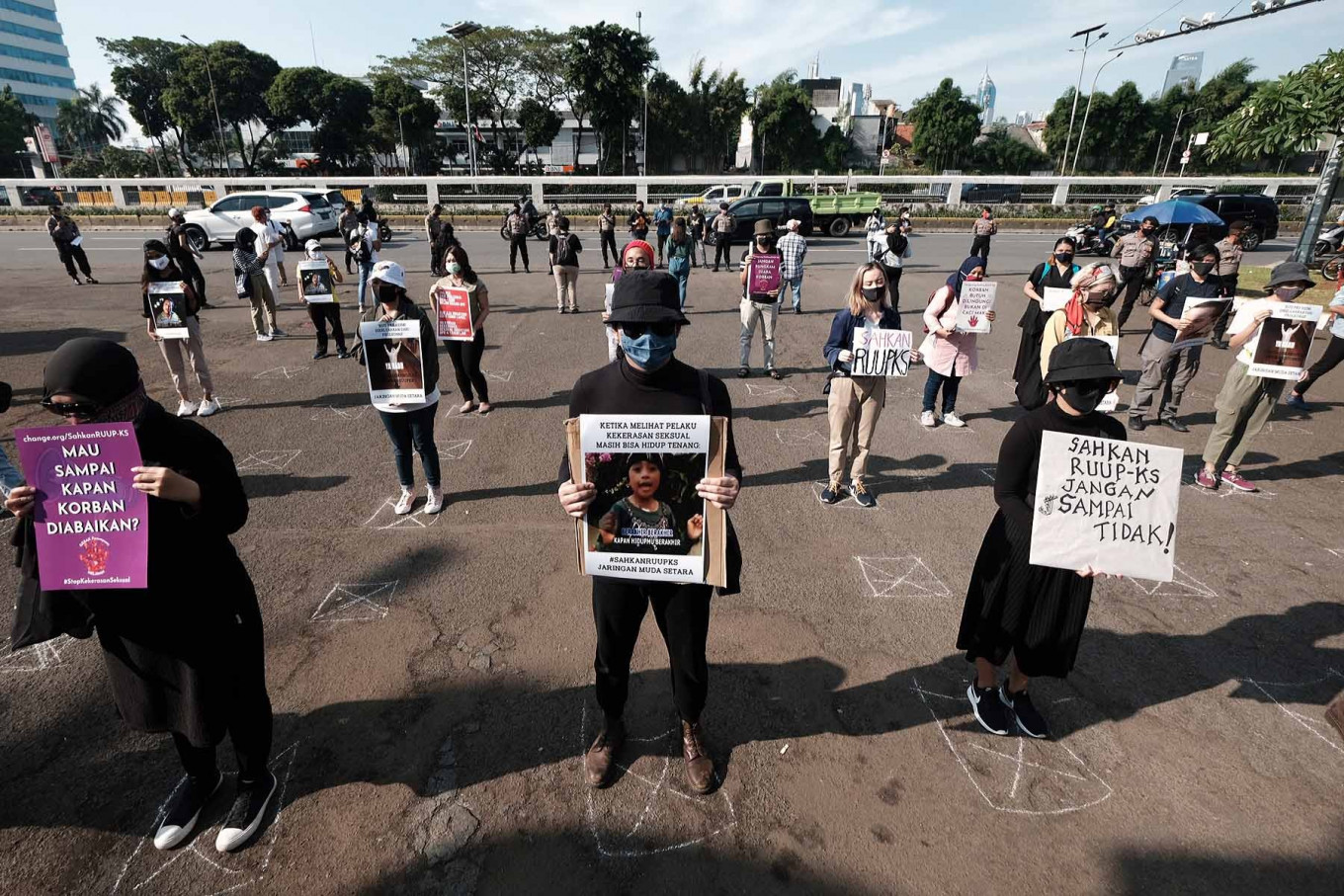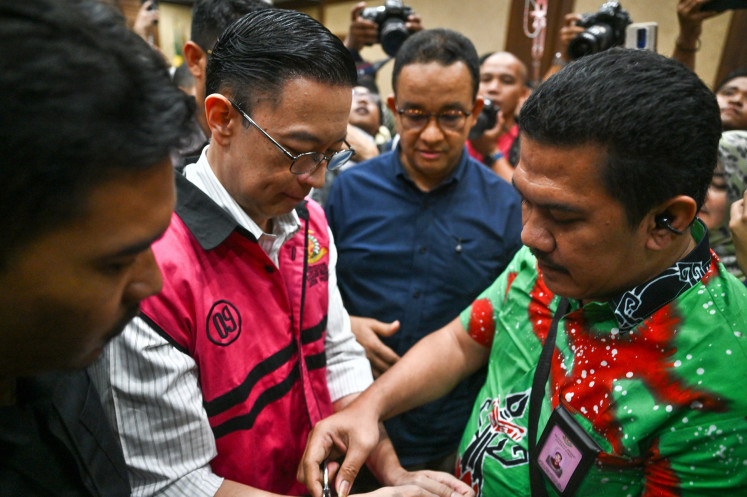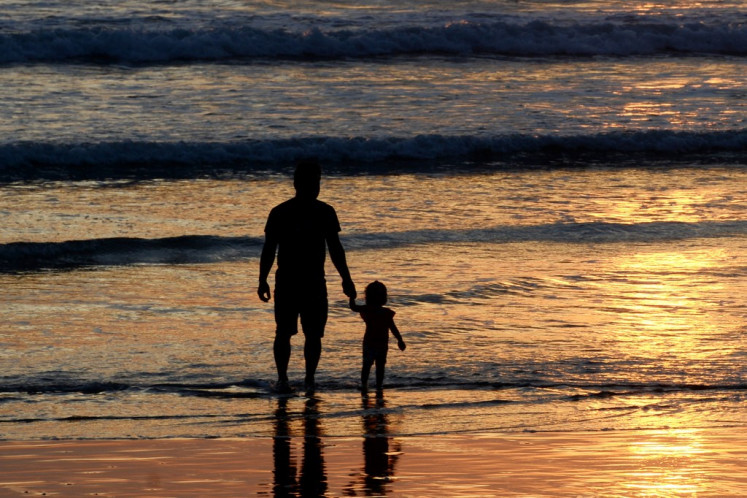Popular Reads
Top Results
Can't find what you're looking for?
View all search resultsPopular Reads
Top Results
Can't find what you're looking for?
View all search resultsHouse set to pass sexual violence bill next week
Bill is a comprehensive legal framework in handling sexual violence much awaited by the Indonesian public.
Change text size
Gift Premium Articles
to Anyone
T
he House of Representatives plans to pass the sexual violence bill into law in a plenary session next week. It is one last step toward providing a comprehensive legal framework for handling sexual violence, much awaited by the Indonesian public, especially women's groups and victims.
Lawmakers and the government had been fast-tracking deliberations since March 28, hosting a nine-day series of meetings that were also attended by representatives of women's groups and the National Commission on Violence Against Women (Komnas Perempuan).
During a session on Wednesday, the bill secured approval from the government and eight of nine House factions: the Indonesian Democratic Party of Struggle (PDI-P), Golkar, Gerindra, the NasDems, the National Awakening Party (PKB), the National Mandate Party (PAN), the United Development Party (PPP) and the Democratic Party.
Only the Prosperous Justice Party (PKS) objects to the bill, arguing that it should be deliberated along with the Criminal Code (KUHP) amendment. The PKS still insists that the bill should ban adultery, extramarital sex and nontraditional orientations such as lesbian, gay, bisexual and transgender (LGBT) sexuality.
Lawmakers will bring the bill for passage in the next plenary session.
Bill working group leader and House Legislation Body (Baleg) deputy chairman Willy Aditya told The Jakarta Post on Wednesday that he had sent a letter to the House Steering Committee (Bamus) notifying that the first level of deliberation had been completed.
Willy hoped the bill could be passed into law before lawmakers enter recess on April 15.
House speaker Puan Maharani said on Thursday that the sexual violence bill would be passed during the current House sitting session.
"The sexual violence bill will be brought to the level two discussions to be passed at the nearest House plenary meeting. One step more, the fruit of this long struggle will be realized," Puan said.
Stipulation shortcomings
Women's groups that have closely scrutinized the bill’s deliberation applauded the accommodative process, saying that the prospective law presents a victim-centered approach by providing victims with access to restitution from a so-called victims’ trust fund, integrated services to handle cases and victim rehabilitation.
The bill also contains an expanded definition of sexual violence, namely physical and nonphysical sexual harassment, sexual torture, forced contraception, forced sterilization, forced marriage, sexual slavery, sexual exploitation and cyber sexual harassment.
Civil Society Group and Service Provider Forum Advocating for the Sexual Violence Bill, in a statement on Thursday, highlighted the progressive provisions regarding restraining orders for perpetrators during case handling to guarantee a safer space for victims.
Ratna Batara Munti of the Legal Aid Foundation of the Indonesian Women’s Association for Justice (LBH APIK), one of the groups that attended the House meeting on Wednesday, appreciated that the bill recognizes the testimony of witnesses or victims with disabilities in case handling, which accommodated insights from disability groups.
However, women’s groups condemned the fact that rape, a major issue in sexual violence cases, was only mentioned in Article 4 paragraph 2 of the bill and was not regulated further in a detailed provision. A proposed provision on coerced abortion was also excluded from the bill, limiting victims’ access to the prospective comprehensive law.
"We hope that the sexual violence bill can be passed in the plenary session on April 14. But there are still some critical notes that we hope can still be included," Ratna said.
Komnas Perempuan also pointed to the exclusion of rape and coerced abortion in the bill.
The commission said it was worried this would pose a risk to victims, because until the new KUHP is enacted, such cases would be handled under the outdated prevailing law.
Law and Human Rights Deputy Minister Edward OS Hiariej said that a provision on rape as a form of sexual violence was already a progressive move.
“Since 2017, we have agreed that rape would be regulated under the new KUHP. Rape and coerced abortion will be included in the new Criminal Code Law draft,” Edward insisted.
For several years, the government and the House of Representatives have deliberated a bill that would revise the KUHP. It would replace, for the first time, the penal code inherited from the Dutch colonial government, even though Indonesia has been independent since 1945.










